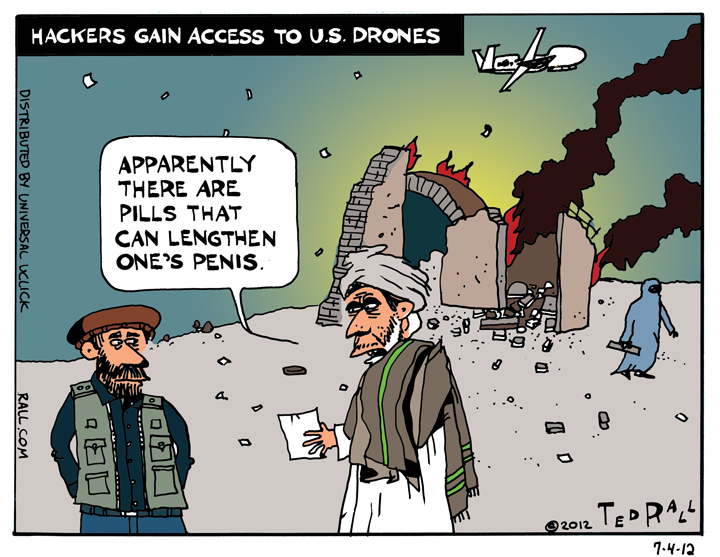U.S. researchers took up the Department of Homeland Security on its $1000 dare to try to hack into a military drone plane–and succeeded. What happens if Russian hackers get into one?
Drone Spam

Ted Rall
Ted Rall is a syndicated political cartoonist for Andrews McMeel Syndication and WhoWhatWhy.org and Counterpoint. He is a contributor to Centerclip and co-host of "The TMI Show" talk show. He is a graphic novelist and author of many books of art and prose, and an occasional war correspondent. He is, recently, the author of the graphic novel "2024: Revisited."

4 Comments. Leave new
OMG! Is nothing sacred???
Actually, the researchers hacked a civilian drone that was using unencrypted GPS technology.
http://mashable.com/2012/06/29/drone-hacking/
http://www.bbc.com/news/technology-18643134
I found several articles on the topic. They all mentioned that military drones use encrypted signals. Different authors had different opinions of the difficulty of hacking these.
It is shockingly easy to hack into anything. Doing so undetected, and without a trace of who you are is much more difficult. If the goal is overt it is simple, if it is covert, it is a very difficult task.
Russel, I don’t know if you noticed the final paragraph in that BBC article to which you provided a link :
«But the big worry is – it also means that it wouldn’t be too hard for [a very skilled person] to work out how to un-encrypt military drones and spoof them, and that could be extremely dangerous because they could turn them on the wrong people.»
I say not to worry ; the US military itself is doing a bang-up job (pardon the pun !) of turning military drones «on the wrong people». It scarcely requires outside aid….
Henri